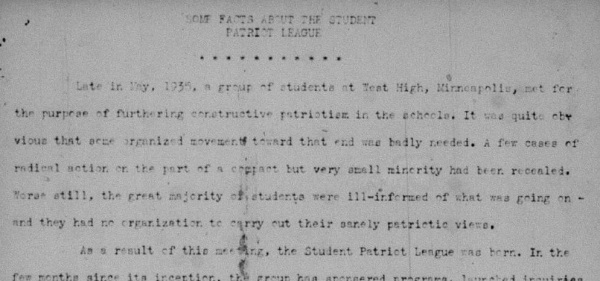You’ve probably seen the graph floating around the interwebs this week. The Economist reported that–despite jeremiads by Betsy DeVos–higher education in America does not seem to be turning students into left-wing drones. As SAGLRROILYLBYGTH know, conservatives have always fretted about it. And they’ve always been wrong. Their schemes to infiltrate left-wing colleges have never panned out and today’s college conservatives should pay attention.
In a speech a few years back, Queen Betsy warned students that college was trying to brainwash them. As she put it,
The fight against the education establishment extends to you too. The faculty, from adjunct professors to deans, tell you what to do, what to say, and more ominously, what to think. They say that if you voted for Donald Trump, you’re a threat to the university community. But the real threat is silencing the First Amendment rights of people with whom you disagree.
Were QB’s worries fair? The Economist dug through a study of political thinking among college graduates. Either college professors—who really do skew to the left—are not “ominously” trying to tell students “what to think,” or they’re bad at it. As The Economist summarized,
Between 2010 and 2014, survey respondents were asked every year which political party they identified with. The share identifying as Democrats did not shift significantly between freshman year and graduation. Similarly, when asked about their political viewpoints, the share of students identifying as conservative changed little during their time at university. The same pattern held for questions about climate change, health care and immigration.
Yet Queen Betsy’s vision of the college threat is anything but idiosyncratic. Throughout the twentieth century, the conservative educational activists I’ve studied uniformly agree that left-wing professors are a deadly threat to students’ faiths and America’s chances.
In 1909, for example, journalist Harold Bolce scored a major scoop when he interrogated college professors about their secularism and anti-Christian ideas. For example, Bolce quizzed Syracuse sociologist Edwin L. Earp and reported to America that the professor no longer valued traditional religion. As Bolce wrote in Cosmopolitan (yes, Cosmo),
‘Do you not believe, Professor,’ I asked, ‘that Moses got the ten commandments in the way the Scriptures tell?’
The professor smiled. ‘I do not,’ said he. ‘It is unscientific and absurd to imagine that God ever turned stone-mason and chiseled commandments on a rock.’

Left-wing professors, c. 1909.
Earp was not alone, Bolce warned. At all leading colleges, issues such as “marriage, divorce, the home, religion, and democracy,” were studied and propounded “as if these things were fossils, gastropods, vertebrates, equations, chemical elements, or chimeras.”
Conservative anxiety about college professors never went away. In the 1920s, for example, William Jennings Bryan often warned about the dangers of higher education. He liked to cite a study by psychologist James Leuba, which found that more than half of “prominent scientists” in the USA no longer believed in a “personal God and in personal immortality.” The upshot on college campuses where those scientists taught? Though only 15% of freshman had discarded Christianity, Leuba found, 30% of juniors had and 40-45% of graduates did.
It hasn’t only been religious conservatives like Bolce, Bryan, and DeVos that have worried. In 1939, the obstreperous leader of the American Legion’s Americanism Commission schemed with a business ally to disrupt the goings-on at Columbia University. Both men—Homer Chaillaux of the American Legion and Alfred Falk of the National Association of Manufacturers—assumed that colleges were ideologically dangerous places. Professors at Columbia had been spewing their left-wing propaganda into the ears of students for too long.
What could they do about it? Chaillaux told Falk that he had some spies “on the inside at Columbia University.” Chaillaux planned to have those “friends” conduct a campaign against leftist professors among students. As Chaillaux optimistically predicted,
possibly we can make the classes of such instructors as George S. Counts and Harold O. Rugg sufficiently unpopular to reduce their present drawing power.
It might sound nutsy to dream of sending secret right-wing agents onto college campuses to denounce and dethrone popular leftist professors, but Queen Betsy and the rest of the Trump regime are engaged in similar stuff these days.
Perhaps most famously, Charlie Kirk and Turning Point USA have made a career out of provoking leftist backlash from college students and professors. And now, Kirk has teamed up with Trump’s favorite evangelical Jerry Falwell Jr. to open a new kind of campus center, one devoted to promoting Trumpist ideas in higher ed.
Will it work? No. It wasn’t necessary or effective in 1939 and it won’t happen today. I don’t doubt the sincerity of Queen Betsy (though I’m iffy these days about Kirk or Falwell). For a century and more, conservatives have fretted that colleges in general were left-wing indoctrination factories. They’re not. At least, they’re not very good ones.



















